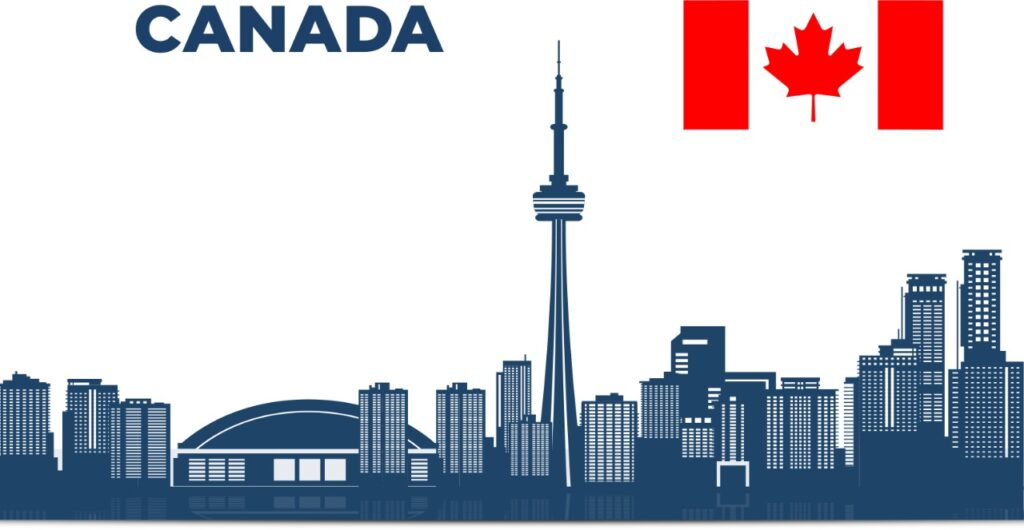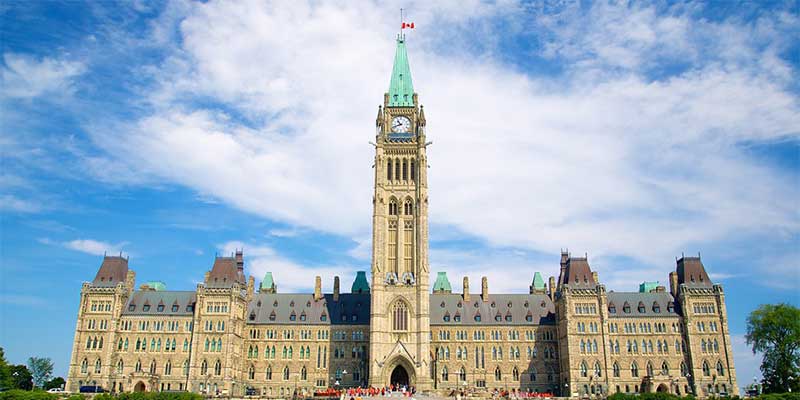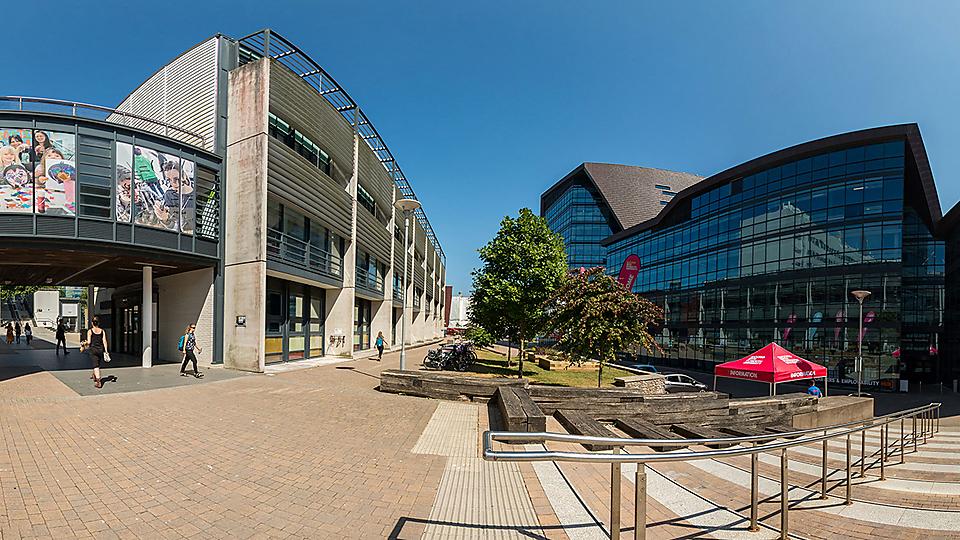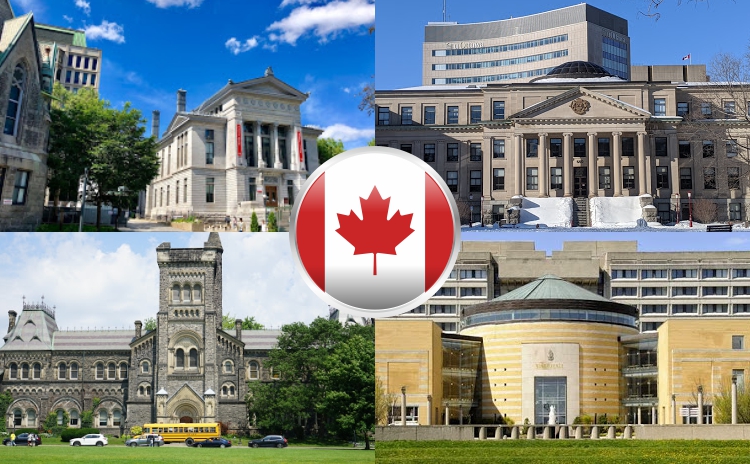Study in Canada
Canada, the land of immense possibilities, is a perfect study destination for Indian students. High-quality education, the diversity of programs in various streams, and world-class educational institutions are the building blocks of Canada’s education system. Choosing to study in Canada is the best decision that you can make for your career. Here are the reasons that make it one of the best study destinations around the world.

Academic excellence
Canada is home to some of the best universities in the world, and many of them consistently rank among the best in World University Rankings. For the year 2021, the QS World university ranking agency has picked 26 Canadian universities, whereas the Times Higher Education World University Rankings has given place to 30 Canadian universities in their list. Canadian universities and colleges maintain high standards and offer a wide range of research focused study programs. Consequently, Canadian degrees and diplomas are recognized worldwide, with which you can easily find a lucrative job anywhere.
Research opportunities
Canadian universities offer immense research opportunities in various fields that include Natural sciences, Engineering and Technology, Medical Sciences, and Agricultural sciences. As a matter of fact, Canadian universities undertake nearly 40 percent of Canada’s research and development.
Affordability
Completing higher education in Canada is a career investment, and it is affordable too! Moreover, Canada’s cities and nearby towns offer several accommodation options at lower rates, making it more appealing to international students. Many Canadian universities and colleges offer scholarships to international students on the basis of the student’s academic records.
Pre- and post-study work opportunities
Studying in Canada is also economical because you can work there while pursuing your study program. Isn’t it great! As an international student, if your study program allows, you can work part-time for up to 20 hours per week during your classes and full-time during winter and summer holidays. Not only can you enjoy your life with your earned money, but you also gain valuable job experience. In addition to this, after completing your study program, you may work up to three years in Canada on a Post Study Work Permit.

PR opportunities
Canada believes international students are best suited for permanent immigration. In fact, Ms. Patricia A. Hajdu – former Minister of Employment, Workforce Development, and Labour, admitted the fact in a statement released in Canada’s International Education Strategy for 2019-2024. She said, “As most international students are young, have Canadian educational qualifications and in-demand labour skills, and are proficient in one of our official languages, they are often ideal candidates for permanent residency.” The country has set the target of welcoming 4 lakh immigrants each year till 2023.
Best country for living
Canada is one of the best countries in the world for a living. Recently, US News & World Report, a prominent American media house and ranking agency, has placed Canada in the first position for quality of life and second in overall ratings. Indeed, Canada is one of the safest countries for higher education and working as well.
Cultural Diversity
Canada prides itself on its multicultural society. Its people are warm and welcoming and are from various ethnic groups, including Canadian, English, Scottish, French, Irish, German, and Indian. Walking down the street in one of Canada’s major cities, you can easily see people talking in their native languages. Many Indians, including Punjabi, Gujarati, and Bengali, have settled there.
Education System in Canada
Education in Canada is the responsibility of its provinces and territories, and it can be divided into primary, secondary, and post-secondary education. From elementary school to university and beyond, Canada’s university quality assurance system ensures that its students earn knowledge of the highest standard.
Providing educational opportunities to international students is a matter of great importance to Canada. In fact, under Canada’s International Education Strategy 2019-2024, the federal government, in collaboration with the provinces, territories, associations, and institutions, will be spending $147.9 million over the five years to strengthen it as a top study destination.
Many internationally recognized graduate-and-post-graduate-study programs are available across the country in both urban and rural regions. Canadian Degrees and diplomas are valued worldwide. Here are the qualifications that you can obtain in Canada.

Certificates and Diplomas
Certificates in Canada generally take one year or less time. On the other hand, diplomas are usually of minimum 2 years. Diplomas in Canada typically have a co-op internship component and can be transferred into a bachelor’s degree.
Associate Degree
Associate Degrees are foundational undergraduate programs and usually take two years to complete. The qualification awards 60-credits, which allows students to enter 3rd-year coursework at an associated university.
Bachelor’s Degree
Bachelor’s degree in Canada generally takes 3-4 years. The 4-year degrees include 2-years of foundational and 2-years of specialised education. Some institutions offer honours that typically take one year to complete.
PG Diploma and Certificate
There are a wide range of diplomas and certificate programs available at the postgraduate level. It usually takes 1-2 years to complete. Postgraduate diplomas and certificates can be transferred to a master’s degree.
Masters degree
A Master’s degree takes 1 to 2 years to complete. It includes two options. One is Masters by thesis (research masters), for which submission of a research project is necessary. The other is Masters by non-thesis, for which submission of a research thesis is not required.
Doctorate or PhD
This qualification is among the highest level of studies and may take 4 to 7 years for completion. After this, students defend their work before a panel of specialists to receive their qualification.
Cost of studying and living in Canada
The most important factors influencing the decision to study abroad are the cost of study and living. Luckily, studying in Canada is affordable! Canadian institutions provide quality education at lower tuition fees than other English-speaking countries such as the UK and the USA. Similarly, the cost of living in Canada is also low. The cost of living depends on many factors, including transportation, housing, health cover, food, and other personal expenses.
Tuition fee
The average tuition fee of an undergraduate program ranges between CAD 8,000 to CAD 30,000. Study programs in humanities tend to be cheaper, while engineering and medicine programs are among the more expensive ones. Similarly, at the postgraduate level, the fees differ depending on the course and stream. The average cost of an MBA program in Canada may range between $30,000 – $40,000. MBA programs are generally expensive and may exceed more than $50,000.
Transportation
You may have to use public transportation like buses, local taxis, trains, and subways to go to your college university. The cost of which may range between CAD 100 to CAD 200.

Health insurance cover
Health support and insurance cover is mandatory for students before the commencement of their program. The cost of medical insurance, however, may differ from region to region.
Accommodation
If the university/ institution does not offer on-campus accommodation, you can rely on off-campus housing, which usually costs CAD 400 to CAD 700 per month. However, remember rental expenses vary from city to city and location.
Living expenses
For grocery shopping, social activities, and emergencies, the cost is approximately CAD 15,000.
Communication expenses mostly depend on the calling and data plan you select and how often you make the calls.
Books and supplies depend on the program you choose. You can apply for a library membership, which is less expensive.
Work while Study in Canada
One of the most significant benefits of studying in Canada is that you can work part-time to support your living. Working part-time not only can you earn money but also gain valuable job experience. Moreover, You do not need to apply for a work permit for this. However, make sure that it is explicitly mentioned in your study permit that you are allowed to work part-time in Canada.
Working On-Campus
You may get permission to work on-campus at your institution, provided that you are a full-time student, have a valid study permit, and a valid social insurance number (SIN). On-campus work may include any job at the library, department, registrar’s office, sports centre, etc.
Working Off-Campus
Most of the students choose to work off-campus. As an international student undertaking vocational training, academic or professional program, you can work off-campus up to 20 hrs a week during your academic sessions and full time during the summer break. To work off-campus:
- You should be a student at a designated learning institution (DLI)
- Your course must be at least six months long
- Your study permit you can work off-campus
- you’ve started studying
- you have a Social Insurance Number
Working Under The Co_op/internship Program
In some study programs, work experience is a required component. i.e., work is required to complete your study program in Canada. For this, you will need a co-op/intern work permit. To be eligible, you will need a valid study permit and a letter from your institute, indicating that work is an integral part of your study program.
Student life in Canada
Most of the Canadian institutions have international student support centres that help newcomers settle in. They support them, help them find accommodation, and familiarise with the surrounding. Generally, these communities provide support to the students throughout their study program.
When new students reach Canada, they first set up a bank account, buy a phone plan, buy a transportation pass, register for a student ID card, and search for accommodation. After finding suitable accommodation, students start their routine work. They attend classes with their international counterparts, share their ideas and views on the related subject matter, prepare notes, complete assignments, spend some time in-between with new friends, and then go to part-time jobs.
Indeed, the schedule of an international student is usually tight. Still, the excitement to do something for their families and loved ones keeps them motivated, and they start learning the value of time, money, and everything.
If you are coming to Canada for studies, then the following points may come handy.
Pack essentials
The most important things you will need include your student visa, passport, college admission papers, Educational certificates, and photocopies. Pack essential medicine, phone, or laptop that you might need. Before packing clothes, google the temperature range of the region and then wrap the clothes accordingly. Choose the clothes that have extra lining and that you can mix and match.
Search for accommodation
If possible, try to find housing before coming to Canada. On the internet, many websites are dedicated to student accommodation, which may help you find accommodation as per your needs. the type of accommodation you may get includes Student residence, Shared apartments, Individual apartments, paying guests, etc. You can also choose to stay on Campus.
Organise your finances
In the initial days, you will probably need more money for various purposes such as accommodation, phone, travelling, etc., for the fulfilment of which your GIC return will come handy. However, it would help if you spent it wisely.

How EDQI will help you
- You will get free career counselling to choose the right career path.
- Next, it will be our responsibility to submit your application to your chosen institute to get your offer letter. During the procedure, we will remain in touch with the institute on your behalf to keep track of your application.
- Next, we will help you pay your admission fee and fulfil other financial requirements such as GIC.
- After that, we will take care of every aspect of delivering your Canadian Student visa to you. We will remain in touch with the embassy for any updates and inform you accordingly.
- Further, you will get pre-departure guidance so that you experience a hassle-free journey and build a bright career abroad.
